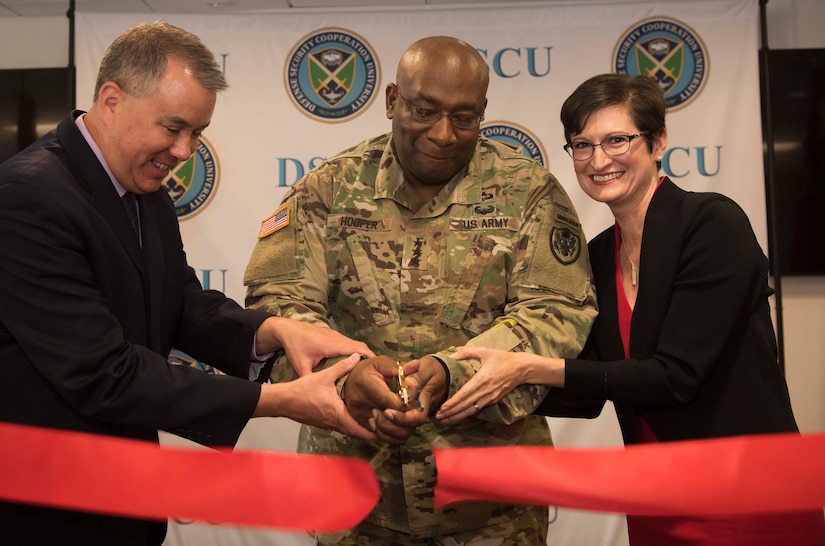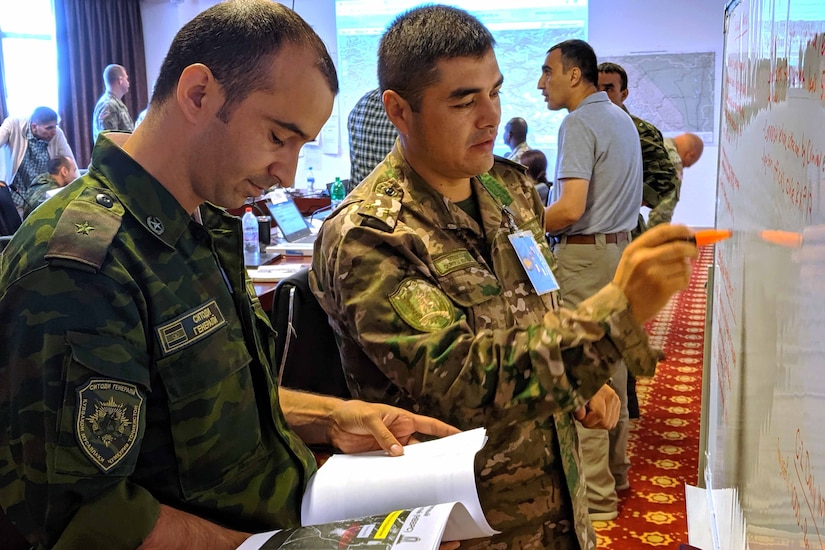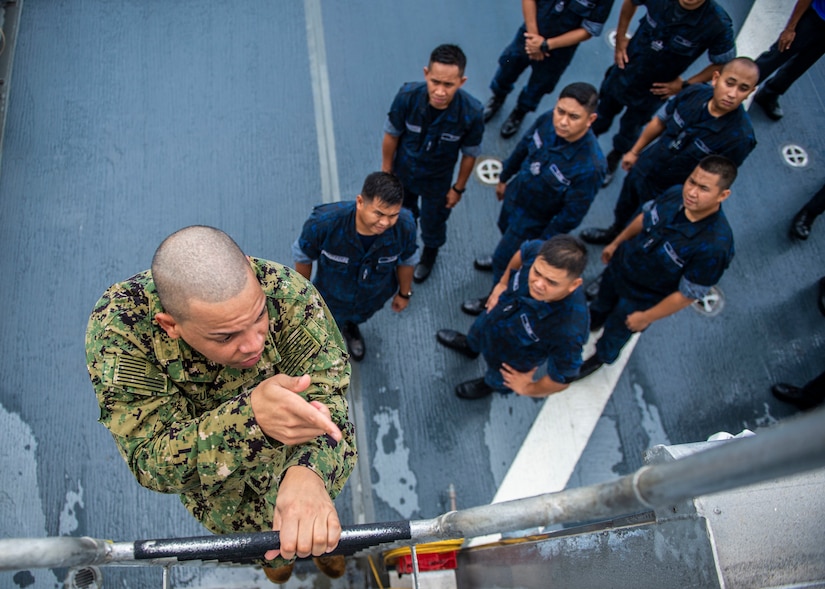U.S. Department of Defense issued the following announcement on Jan. 30.
More than 20,000 employees involved in Defense Department security cooperation activities will get about two years to meet new training requirements to be certified in their areas of expertise and forge the diverse workforce for the first time into a profession.
"Until this point we have not sought to create a profession, but there is a great demand for this community to be treated as a community and to be considered part of a profession," said Cara Abercrombie, the first president of the Defense Security Cooperation University and the principal director for workforce development with the Defense Security Cooperation Agency.
The goal now, Abercrombie said, is to create an educational framework for everybody in the security cooperation workforce.
"What we are giving them is the training and experience they need to effectively perform their assigned security cooperation responsibilities," she said. "We are also, with the continuous learning process, going to ensure they remain up to date in what's happening in their community. We are basically creating the industry standards for security cooperation."
In September, DSCA stood up the Defense Security Cooperation University, which has campuses in Arlington, Virginia, and Wright-Patterson Air Force Base, Ohio.
As president of the DSCU, Abercrombie is responsible for a large part of providing training to every DOD employee who is involved in security cooperation.
Over the next two years, Abercrombie said, each of those employees will be responsible for attaining at least a basic-level certification in one of five security cooperation areas of concentration. Those areas of concentration include security cooperation case lifecycle management; execution support management; planning, oversite and execution management; security cooperation office operations and management; and acquisition management. Certification levels include basic, intermediate, advanced and expert.
Abercrombie said there is a deadline for employees to complete that certification. This year is a transition year, she said. By January 2021, participation will become mandatory.
"You will have one year to be certified at the basic level, then two years to get up to the intermediate level, then two additional years to the advanced level, if that is what you need for your position," she said.
All of the basic level training can be done online, Abercrombie said, while intermediate and advanced level will also include classroom training. For individuals in designated SC positions, DSCA will pay for that training and transportation to and from the training, which takes the financial burden off an employee's agency. Most in-residence training will last three to five days, she said, though some security cooperation officers who operate downrange may need as many as five weeks of in-residence training.
Abercrombie said DSCA is preparing to "surge" staff and classroom space to handle the influx of members of the security cooperation workforce who will need to become certified. "It's going to be a challenge for the workforce and for us to get everybody in residence," she added.
Security cooperation, Abercrombie said, involves all the DOD interactions, programs and activities done with foreign security forces and their institutions. This includes exercises, armaments cooperation, information sharing, collaboration, foreign military sales, ministry advising and humanitarian assistance.
"The reason we do it is we are looking to build relationships that promote our interests, enhance our military-to-military interoperability, as well as build and apply partner operational and institutional capacity in support of shared interests," she said.
The effort to create a professionalized, certified security cooperation workforce was first laid out in the 2017 National Defense Authorization Act, Abercrombie said. In that law, legislators instructed DOD to create a security cooperation workforce development program.
The program's goal, lawmakers said, is to ensure the security cooperation workforce has the capacity, in both personnel and skills, needed to properly perform its mission, provide appropriate support to the assessment, planning, monitoring, execution, evaluation and administration of security cooperation programs and activities.
The effort will improve outcomes in security cooperation, Abercrombie said.
When DSCA first embarked on developing the program, Abercrombie said, the agency had been unclear on how many people across DOD were involved, noting that while they might be part of the security cooperation effort, the majority do not work for DSCA.
"We surveyed the department's enterprise and came back with more than 20,000 civilian and military positions across the Department of Defense who are supporting the security cooperation enterprise," she said.
Abercrombie said DSCA has been working with the Defense Civilian Personnel Advisory Service to help in coding employee positions within personnel systems to designate employees as being part of the security cooperation enterprise, so that DSCA officials know who is affected. Civilian position descriptions will be also updated, she said.
"Eventually, everybody in the workforce will have basic-level, consistent understanding of what we are trying to accomplish in security cooperation," Abercrombie said. "Even if they are only working one little piece of it, they will understand how that connects to the broader enterprise and how their role is supporting the larger national interest."
Original source can be found here.






 Alerts Sign-up
Alerts Sign-up